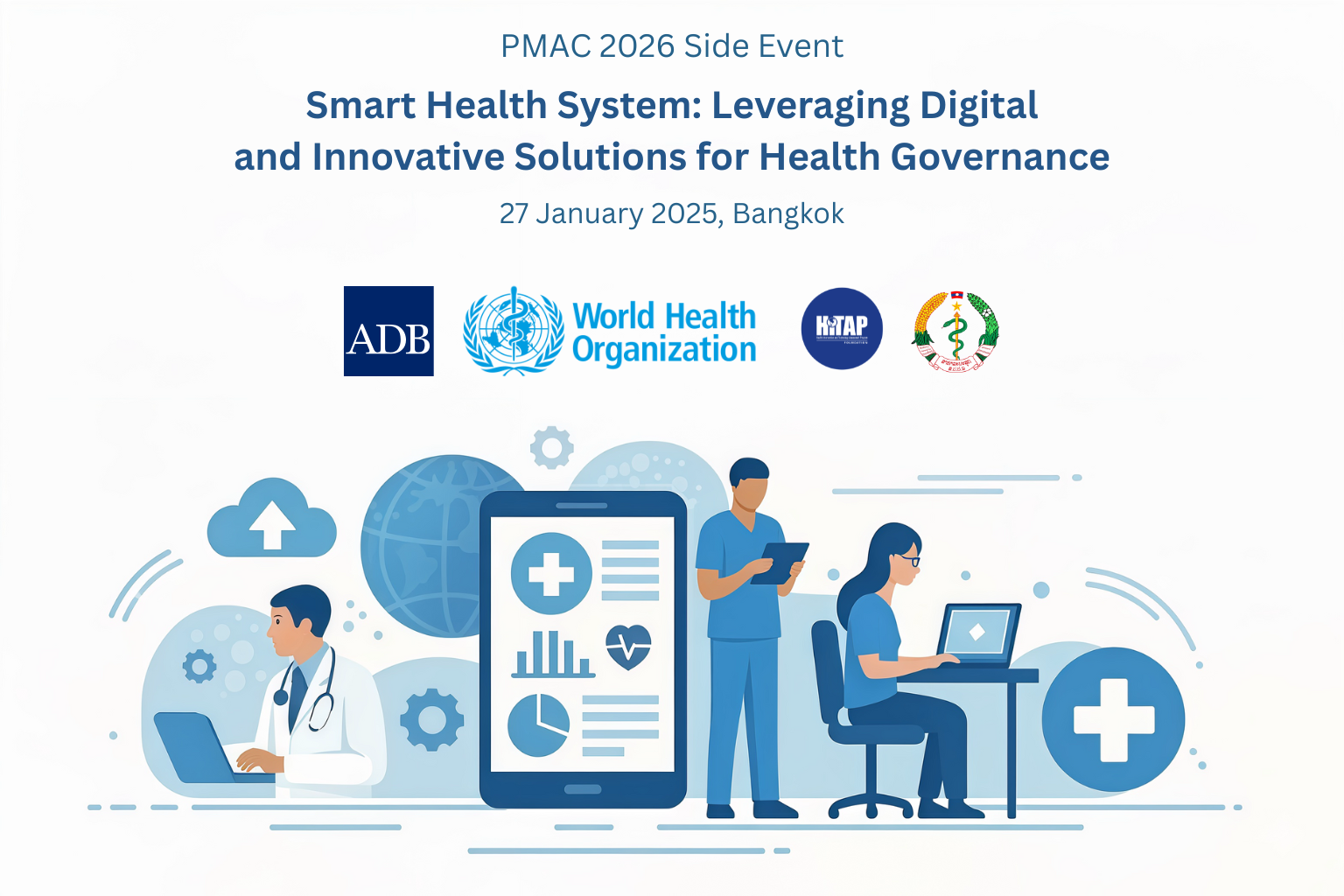Side Meetings
SMB302
Smart Health System: Leveraging Digital and Innovative Solutions for Health Governance
27
Jan
- Asian Development Bank
- World Health Organization
- HITAP, Ministry of Public Health, Thailand
- Ministry of Health, Lao PDR

Background and rationale:
Health systems globally are under increasing pressure from rising non-communicable diseases (NCDs), communicable diseases, aging populations, fiscal constraints, and workforce shortages. The COVID-19 pandemic further exposed systemic vulnerabilities and underscored the urgent need for scalable, adaptive, and data-driven solutions. Digitizing health systems—through tools like Electronic Health Records (EHRs), telemedicine, AI, and mobile health (mHealth)—offers a transformative pathway to address these challenges and reshape how care is delivered, accessed, and managed. In countries with resource constraints and geographic diversity, digitalization offers a unique opportunity to strengthen health systems, improve equity, and accelerate progress toward Universal Health Coverage (UHC).
Advancing innovative solutions also help address persistent health dilemmas, such as dengue, which places a growing strain on health systems, overwhelming health facilities, and exacerbating inequities. With increasing impacts of climate change, dengue remains one of the fastest-growing mosquito-borne diseases worldwide, with Asia and the Pacific historically accounting for nearly 70% of the global burden. Traditional vector control measures are increasingly difficult to sustain, particularly in resource-constrained or decentralized health systems. Wolbachia repalcement method, that introduces a naturally occurring bacterium into Aedes aegypti, has demonstrated strong and lasting impact in reducing dengue transmission sustainably in Indonesia, New Calednonia and Brazil in areas of implementation. A number of other other countries inlcuding Vanuatu, Fiji, Kiribati and Viet Nam have completed demonstration projects at a smaller scale in the targted sites, and some other countries inlcuding Cambodia, Lao PDR and Timor Leste have already or are now initiating demonstration projects in 2025. Scaling this innovation across Asia and Pacific requires aligning evidence, policy and regulation for adoption, sustainable financing, and multi-sectoral delivery models — all of which are critical to governing health system transformation in the context of demographic shift.
The ADB and partners are committed to supporting the region and its developing member countries in adopting innovative solutions to solve the growing health challenges. This side meeting will demonstrate health solutions driving people-centered health system transformation. The session aims to provide participants with policy insights, actionable strategies and lessons learnt through implementation in different country contexts.
- Showcase Pilot Initiatives: Present ongoing development of digital solutions to improve patient care, data transfer, and health information exchange. This includes electronic medical records, digital disease portals, client health registries, and interoperability mechanisms.
- Showcase global and regional evidence on health innovations, such as Wolbachia’s impact in reducing dengue transmission and share country experiences, in different stages of introduction, from Asia on successful implementation and potential scale-up.
- Identify gaps and challenges in adoptive capacity, including policy, financing, and operational issues for technology and innovative solutions.
- Promote partnerships and policy dialogue to foster collaboration among health and tech stakeholders, addressing specialized care needs, chronic conditions, and improving health outcomes.
- Promote investment cases to catalyze financing and partnerships as well as promote scalable digital solutions that address demographic shifts and related challenges.
- Enable Interactive Learning: Provide participants with hands-on experience with digital tools and interactive apps.

